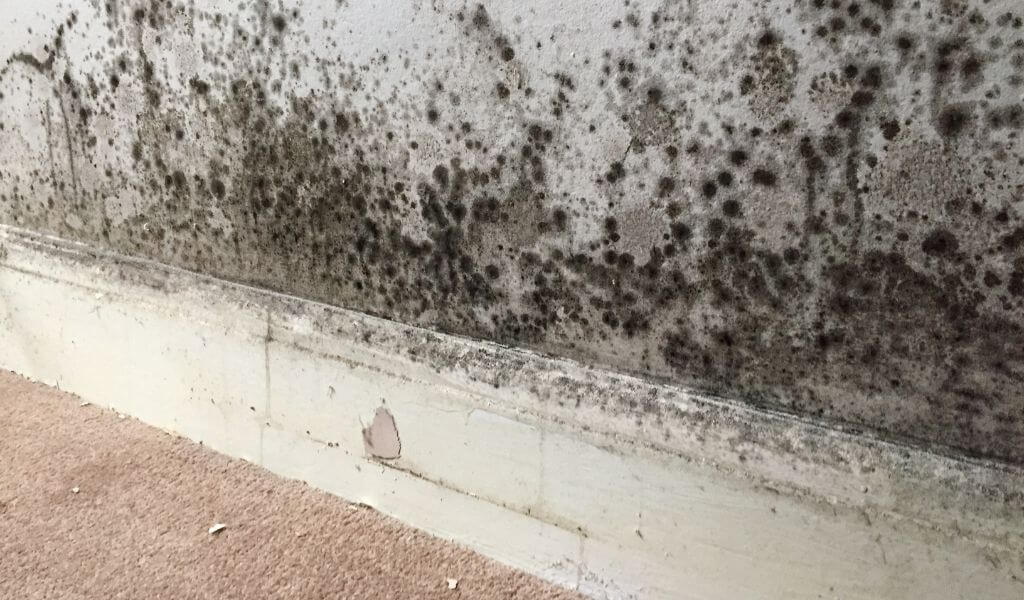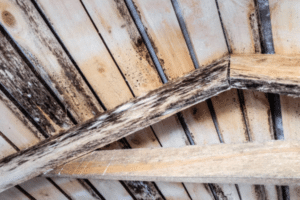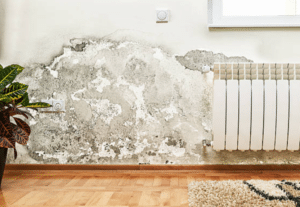
Mould is a common problem in UK homes, and it can be both unsightly and harmful to your health. If left unchecked, mould can cause respiratory issues and allergies, as well as structural damage to your home.
So what causes mould to grow in UK homes? According to mould expert Jo Powell, there are several factors that can contribute to mould growth:
- High humidity: Mould thrives in damp, humid environments, so homes with high levels of humidity are more prone to mould growth. This is especially common in homes with poor ventilation, as stale air cannot escape and excess moisture builds up. There are a few key factors that can lead to high humidity in the home. For example, the use of steam-producing appliances such as showers, cooking stoves, and clothes dryers can increase humidity levels. In addition, activities such as drying laundry indoors and failing to use exhaust fans in bathrooms and kitchens can also contribute to high humidity.
- Leaks: Water leaks, whether from pipes or the roof, can lead to mould growth if they are not promptly repaired. Even small leaks can create the perfect conditions for mould to thrive, so it’s important to keep an eye out for any signs of water damage. Some common signs of a leak include water stains on ceilings and walls, the smell of mould, and the sound of dripping water.
- Condensation: Condensation occurs when warm, moist air comes into contact with a cold surface, such as a window or wall. This can create the ideal conditions for mould to grow, especially in areas of the home that are not well-ventilated. Condensation is often a problem in homes that are poorly insulated or have inadequate heating, as the warm air inside the home comes into contact with the cold surfaces of the windows and walls.
- Flooding: If your home has been flooded, there is a high risk of mould growth. Water damage from flooding creates the perfect breeding ground for mould, and it can be difficult to completely remove once it has taken hold. In the event of a flood, it is important to dry out your home as quickly as possible and to remove any standing water to prevent mould from growing.
- Poor ventilation: As mentioned above, poor ventilation can contribute to high humidity and condensation, which can lead to mould growth. Ensuring that your home is well-ventilated can help prevent mould from taking hold. Some simple ways to improve ventilation include opening windows, using exhaust fans, and ensuring that there is enough airflow throughout the home.
So what can you do to prevent mould from growing in your home? Here are a few tips from Jo Powell:
- Fix any leaks as soon as possible: Even small leaks can create the perfect conditions for mould to grow, so it is important to fix any leaks as soon as you become aware of them. This can help prevent water damage and mould growth in the long run.
- Use dehumidifiers to reduce humidity: Dehumidifiers can help to remove excess moisture from the air, which can help to prevent mould growth. They are especially useful in humid environments such as basements and bathrooms.
- Improve ventilation: As mentioned above, poor ventilation can contribute to high humidity and condensation, which can lead to mould growth. Improving ventilation in your home can help to prevent these conditions and reduce the risk of mould growth. Some simple ways to improve ventilation include opening windows, using exhaust fans, and ensuring that there is enough airflow throughout the home.
- Dry wet areas thoroughly and promptly: If any areas of your home become wet, it is important to
In summary, mould growth in UK homes is often caused by high humidity, leaks, condensation, flooding, and poor ventilation. Taking steps to prevent these conditions and addressing mould promptly can help keep your home mould-free. Remember to seek the help of a professional if you are unsure how to safely remove mould from your home. Protecting your home and family from the negative impacts of mould is important, so don’t hesitate to take action if you suspect that mould may be a problem in your home.



